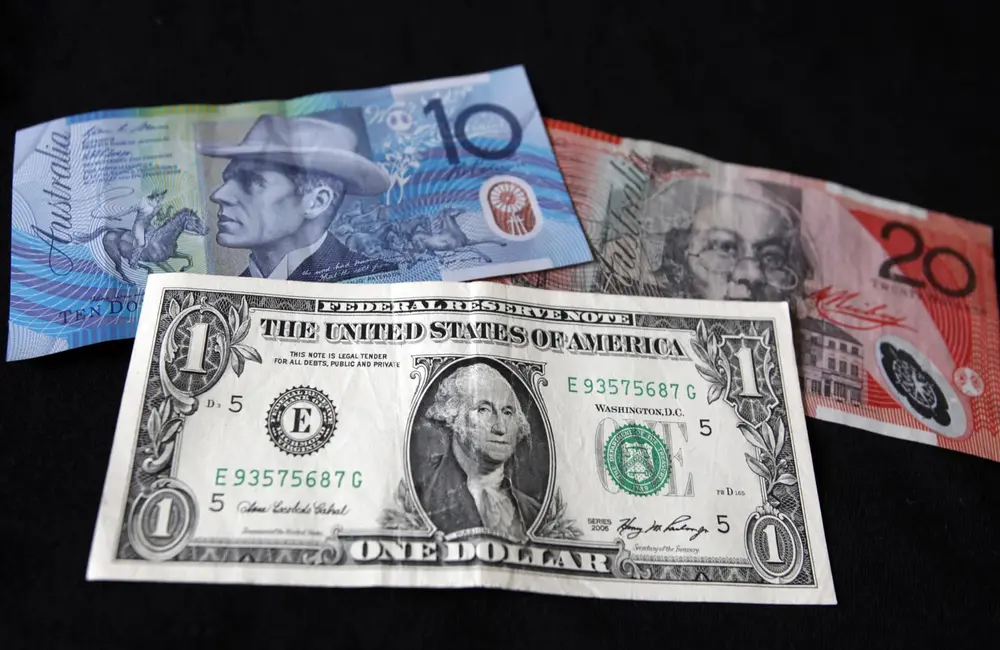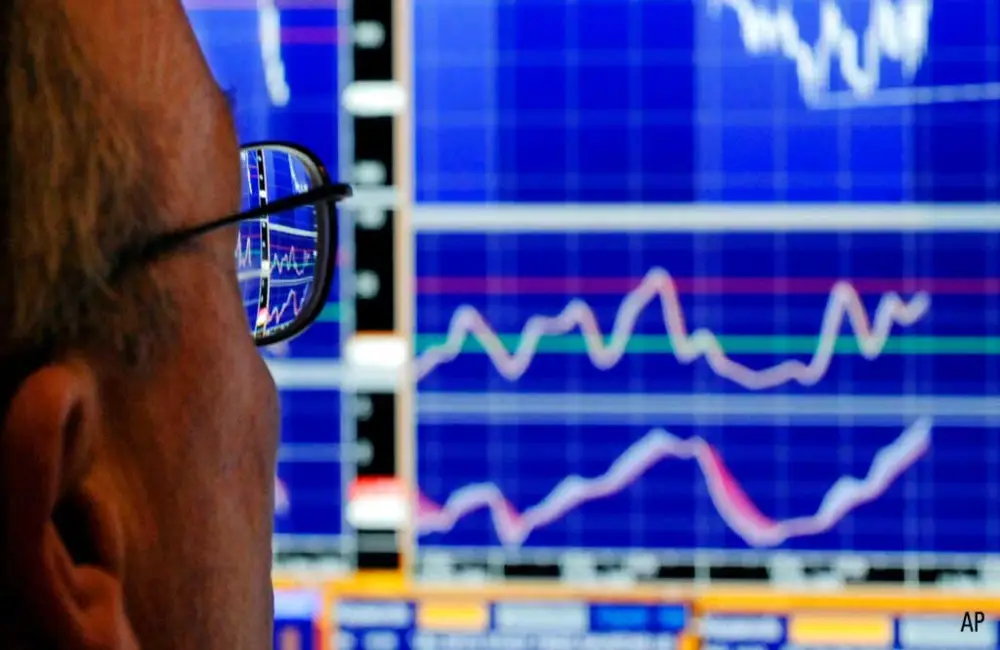ASX futures were flat as of 8:00am on Thursday.
Stronger-than-expected manufacturing data Wednesday pushed stocks lower and lifted the 10 Year Treasury yield to a level rarely seen in recent years, as investors weighed signs of persistent inflation.
The S&P 500 fell 0.5% and the technology-focused Nasdaq Composite dropped 0.7%, while the Dow Jones Industrial Average was flat. All three US indices closed February with monthly losses.
US factory activity contracted for the fourth month in a row, according to the Institute for Supply Management's February survey, but the data came in slightly above analysts' projections. Manufacturers surveyed also said they saw signs of improving demand and accelerating price pressures in the months ahead.
Investors are concerned that if such economic data remains robust, it could prompt the Federal Reserve to raise interest rates further and keep them elevated to quell inflation.
In commodity markets, Brent crude oil added 1.15% to $US84.41 a barrel while gold edged up 0.60% to US$1,837.83.
Australian government bond yields edged lower, with the 2 Year dipping to 3.50% and the 10 Year falling to 3.78%. Meanwhile, yields for US Treasury notes increased, with the 2 Year leaping to 4.89% and the 10 Year reaching a rare 4.00%.
The Australian dollar climbed to 67.48 US cents from its previous close of 67.27. The Wall Street Journal Dollar Index, which tracks the US dollar against 16 other currencies, edged down to 97.55.
Asia
Chinese stocks ended the session higher, sustaining the morning's solid gains. The market was boosted by the country's latest upbeat PMI data and continued investor enthusiasm for AI commercialization. The benchmark Shanghai Composite Index advanced 1.0% to 3312.35, while the Shenzhen Composite Index was up 1.0% at 2163.82. The ChiNext Price Index gained 0.6% to 2443.95. A wide range of tech companies, from telecom carriers and computing equipment makers to game and software developers, led the gains. The tech sector has enjoyed a bullish run in recent weeks as ChatGPT's rapid popularity boosted sentiment regarding AI commercialization opportunities. Beijing's latest national digitization plan offered further support. China Unicom jumped 10% and China Telecom was up 8.55%.
Hong Kong stocks ended the session sharply higher, as China's latest PMI data beat expectations and buoyed sentiment. "China's surging February manufacturing and services PMIs, along with continued improvement in high-frequency data, and pro-business policy, suggest the accelerating growth momentum in February," Barclays analysts said in a note. The benchmark Hang Seng Index jumped 4.2%, its best one-day gain since early December, to settle at 20619.70. A wide range of sectors surged to support the market. Developer Longfor soared 9.6%, electronics supplier Sunny Optical advanced 8.9% and game developer NetEase was up 8.4%.
Japanese stocks ended higher, led by gains in trading houses and steelmakers, as concerns eased over borrowing costs. Mitsui & Co. gained 3.6% and JFE Holdings climbed 2.8%. Among individual movers, Ajinomoto surged 9.3% after it raised its fiscal-year net profit forecast. The Nikkei Stock Average rose 0.3% to 27516.53.
Indian shares closed higher, led by gains in auto and financial stocks. Investors hunted for bargains after recent losses caused by fears regarding monetary policy tightening. Mahindra & Mahindra rose 0.4% and Tata Motors ended 1.3% higher. Axis Bank added 2.4% and Bajaj Finserv climbed 0.8%. India's third-quarter GDP growth slowed to 4.4% from 6.3% the previous quarter, data showed late Tuesday. The benchmark Sensex index gained 0.8% to 59411.
Europe
European stocks mostly fell, though most Asian indices gained after strong Chinese PMI data. The pan-European Stoxx Europe 600 dropped 0.8%, the French CAC 40 backtracked 0.5% and the German DAX shed 0.4%.
"Commodities have started March on a firmer footing after China data confirmed activity in the world's biggest raw material consumer is picking up momentum," Ole Hansen, head of commodity strategy at Saxo Bank, wrote. "A softer dollar has provided additional support after weaker US data."
The British FTSE 100 index ended Wednesday’s session 0.5% higher after the Bank of England governor said the future of interest rate rises remains undecided. "It would be a brave person who put much faith in Andrew Bailey's comments about UK interest rates, but his view that rates might not need to keep rising has put the FTSE 100 on top among global indices," IG analyst Chris Beauchamp said. Positive Chinese PMI numbers also boosted the British index as basic resources and industrial stocks rallied, CMC Markets analyst Michael Hewson noted.
North America
Stronger-than-expected manufacturing data Wednesday pushed stocks lower and lifted the 10 Year Treasury yield to a level rarely seen in recent years, as investors weighed signs of persistent inflation.
The S&P 500 fell 0.5% and the technology-focused Nasdaq Composite dropped 0.7%, while the Dow Jones Industrial Average was flat. All three US indices closed February with monthly losses.
US factory activity contracted for the fourth month in a row, according to the Institute for Supply Management's February survey, but the data came in slightly above analysts' projections. Manufacturers surveyed also said they saw signs of improving demand and accelerating price pressures in the months ahead.
Investors are concerned that if such economic data remains robust, it could prompt the Federal Reserve to raise interest rates further and keep them elevated to quell inflation.
"There's a growing realization that the economy hasn't fully responded to the rate hikes so far," said Thorne Perkin, president of multi-family office Papamarkou Wellner Perkin.
Federal data showing falling unemployment and accelerating price increases in recent weeks has forced a sell-off in bonds. On Wednesday, the 10 Year Treasury yield briefly ticked back above 4%, a level reached last year for the first time in more than a decade.
Higher yields raise borrowing costs for businesses and consumers, and some businesses are already feeling the squeeze. Higher bond yields also give investors more places to put their money for steady returns, making riskier investments like stocks less appealing.
Samuel Dedio, portfolio manager at Patrumin Investors, said he has responded with short-term bets on corporate bonds that mature in a year or less. Beyond that, he said, it is difficult to project how businesses will finance investments or acquisitions given uncertainty around the Fed's interest rate policy.
"Companies have to adjust for the cost of capital," Mr. Dedio said.
Among individual US stocks, shares in Rivian Automotive dropped 18%. The electric vehicle startup reported mixed results Tuesday and said it would recall nearly 13,000 vehicles to fix a faulty sensor in the front passenger seat.
The Covid-19 vaccine developer Novavax, meanwhile, plunged 26% after warning investors Tuesday that "substantial doubt exists regarding our ability to operate" through the next year. Tupperware Brands fell 15% after the company posted a loss for the fourth quarter.
























